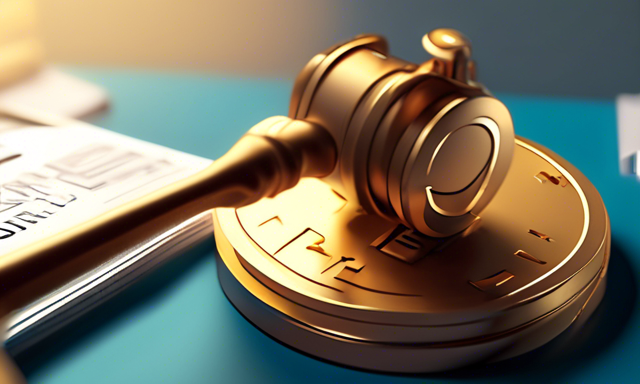Understanding Crypto Regulations: Navigating the Legal Framework
Cryptocurrencies have undoubtedly captured your attention. You may have heard about the tremendous profits some investors have made, or perhaps you are intrigued by the potential of blockchain technology. But with the excitement surrounding this emerging field comes the need to understand the legal framework that governs cryptocurrency. In this article, we will explore the importance of crypto regulations and provide insights on how to navigate this complex landscape.
Why Crypto Regulations Matter
First and foremost, it’s crucial to understand that crypto regulations exist to protect you as an investor and prevent fraudulent activities within the cryptocurrency market. Although cryptocurrencies are often associated with decentralization and anonymity, governments around the world have recognized the need to establish legal frameworks to ensure transparency, stability, and accountability.
By implementing regulations, governments aim to minimize the risk of financial crimes, such as money laundering and terrorist financing, which can occur through illegitimate use of cryptocurrencies. Regulations also help protect consumers from potential scams, as they require businesses and individuals operating in the crypto industry to meet certain standards and comply with specific reporting requirements.
Navigating the Legal Landscape
Understanding crypto regulations can be a daunting task, given the continually evolving nature of the market and the varying approaches taken by different governments. However, there are some key principles you can keep in mind as you navigate this legal landscape.
1. Research the Jurisdiction: The legal framework surrounding cryptocurrencies varies from country to country. Therefore, it is crucial to research and understand the regulations specific to your jurisdiction to ensure compliance.
2. Know Your Customer (KYC) Rules: Many countries require cryptocurrency exchanges and platforms to implement KYC procedures. These procedures involve verifying the identity of users to prevent money laundering and other illicit activities. As an investor, you may be required to provide identification documents when signing up for a crypto exchange.
3. Tax Obligations: Cryptocurrency transactions may be subject to taxation, just like any other investment or financial transaction. It is essential to familiarize yourself with your jurisdiction’s tax laws and obligations to avoid any potential legal consequences or penalties.
Common Concerns and FAQs
1. Is investing in cryptocurrencies legal?
Yes, in most countries, investing in cryptocurrencies is legal. However, the specific regulations and guidelines surrounding buying, selling, and trading cryptocurrencies may vary.
2. Will governments ban cryptocurrencies?
While some governments have expressed concerns about cryptocurrencies, an outright ban is unlikely. Instead, most governments are focusing on implementing regulations to safeguard their financial systems and protect investors.
3. How can I ensure the security of my cryptocurrency investments?
To ensure the security of your cryptocurrency investments, it is essential to follow best practices such as using secure wallets, enabling two-factor authentication, and conducting thorough research before investing in any particular project or exchange.
4. What should I do if I suspect a cryptocurrency scam?
If you suspect a cryptocurrency scam, it is crucial to report it to the relevant authorities in your jurisdiction. This will help protect other potential victims and aid in the investigation and prosecution of the scammers.
Conclusion
Understanding and complying with crypto regulations is an integral part of participating in the cryptocurrency market. By researching your jurisdiction’s specific regulations, following KYC rules, and fulfilling your tax obligations, you can navigate this legal landscape with confidence. Remember, the ultimate goal of regulations is to protect investors like you and ensure the long-term stability and growth of cryptocurrencies.





 By
By
 By
By
 By
By
 By
By
 By
By